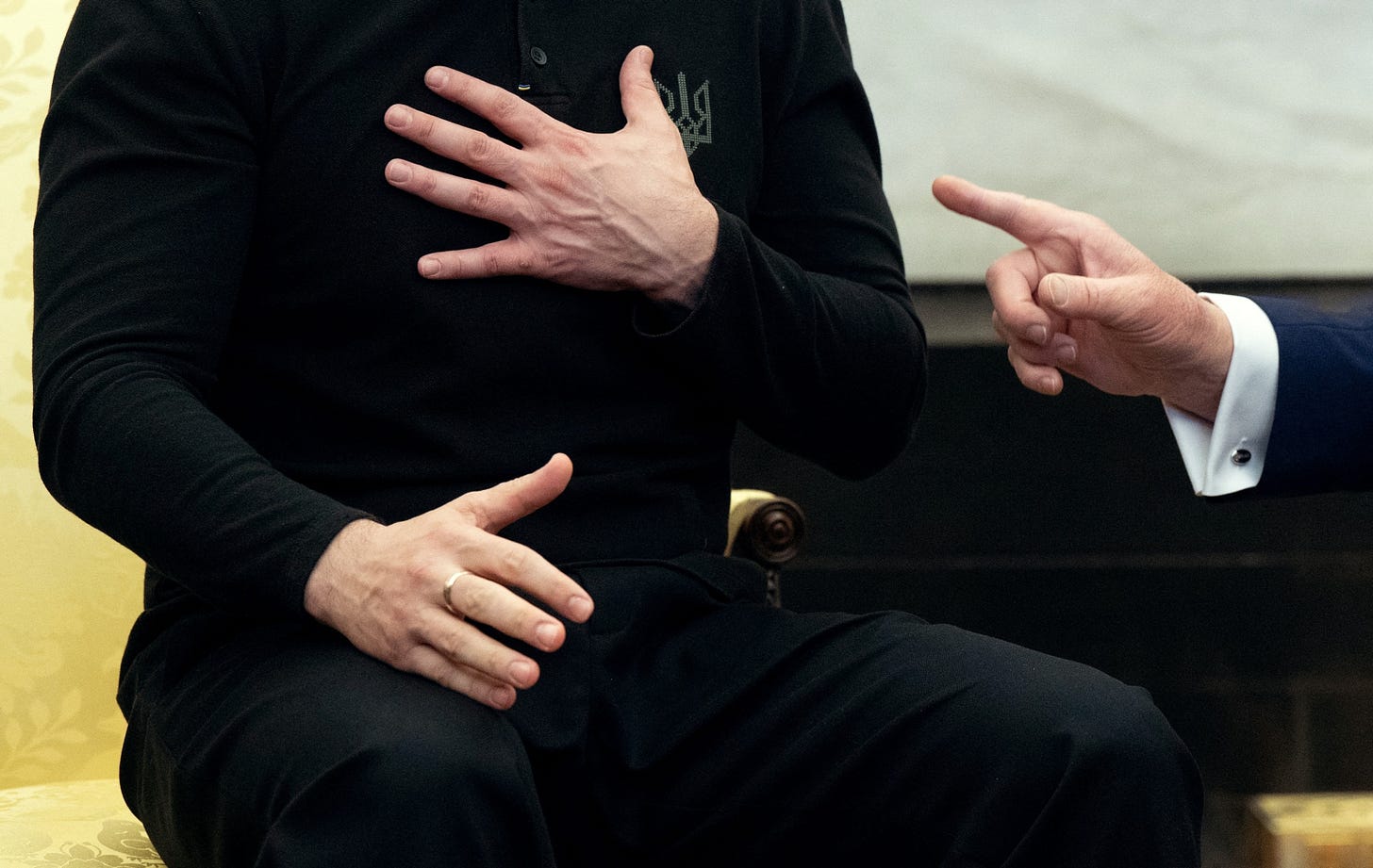A Cheat Sheet For U.S. Allies
Donald Trump’s corrupt relationship with Vladimir Putin explains much of his behavior. But there’s more to it than that.
I’ll confess that if you’d asked me how I imagined last week’s Oval Office meeting between Donald Trump and Volodymyr Zelenskyy would go, I don’t think I would have predicted “JD Vance will pelt Zelenskyy with Russian talking points while Trump screams at and belittles him.”
But I wouldn’t have ruled it out either.
The contemptible episode brought to the surface just about every irregular and faithless facet of Trump’s regime. You can explain a lot about how Trump and Vance and Elon Musk conduct themselves by reference to Trump’s peculiar affection for Vladimir Putin, and the right’s broader-but-lesser affinity for other authoritarian governments. But if you want to understand the Oval Office ambush fully, along with other unusual conduct, pertaining to issues unrelated to Russia and Ukraine, you have to supplement the analysis.
To be clear, Trump’s subservience to Putin explains the reversal of U.S. foreign policy, and set the stage for Friday. Trump and his administration have made decisions that benefit the U.S. in no way, and that aren’t popular among Americans, but that do excite the Russian government, at a staggering pace.
In just six week’s they’ve:
Illegally dismantled USAID;
Nominated and twisted arms to confirm several Kremlin-approved national security officials;
Announced their intent to begin removing sanctions on Russia, and suspended enforcement actions against sanctioned people;
Shut down federal efforts to track and repel foreign influence in U.S. elections;
Suspended arms shipments to Ukraine, again, illegally;
Sided with Russia, against Ukraine, in opposing a U.N. resolution condemning the Russian invasion on its third anniversary.
That’s just a partial list.
If before the inauguration you’d gamed out what the U.S. government might do had the most paranoid first-term Trump-resistance figures been right about everything, you couldn’t have come up with a list much worse than this. To the contrary, you probably would have omitted some items as too on the nose.
I’m confident that foreign governments, including allied governments, have tasked their analysts with trying to understand this strange relationship, and the reasons behind it, and thus build a framework for anticipating otherwise-inexplicable U.S. policy changes.
And this kind of cui bono analysis goes a long way. But most of these decisions were undertaken without great fanfare. There are still minds in the White House who seem to understand that Trump is way out in front of the public, which still overwhelmingly understands the U.S. as rightfully in alliance with democracies against dictators. Most of the strange favors he does for Russia he tries to do quietly, or in unscripted moments. Ambushing Zelenskyy at a televised Oval Office summit is not like that.
X FACTOR
So why did Trump and Vance choose to create an embarrassing spectacle? An own goal that has left them begging for (sorry, “insisting on”) an apology from Zelenskyy? It probably wouldn’t have happened if Trump weren’t in Putin’s pocket, but the decisive factors lie elsewhere, in maladjustments that transcend the Trump-Putin relationship.


